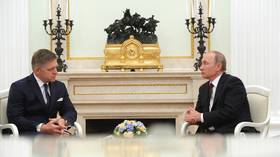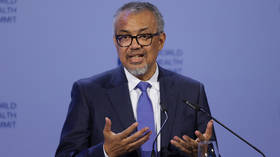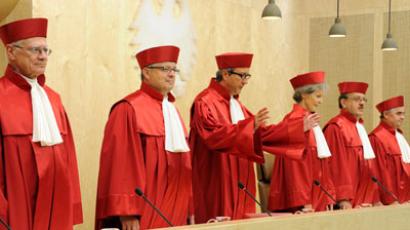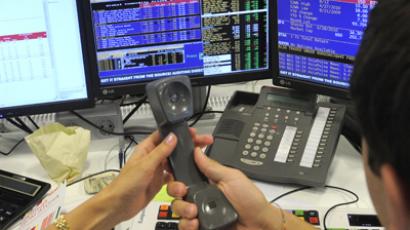Eurozone sentiment falls in September to lowest level in 3 years

Europe appears headed for a deepening economic recession, as its economy contracted faster in September than any month since June 2009. A closely watched survey found that’s despite easing of market concerns over the three-year debt crisis.
Financial data company Markit said that a “flash” reading for its purchasing managers' index (PMI) – a gauge of business activity – for the 17-country eurozone fell to 45.9 in September from 46.3 in the previous month.Such a preliminary figure is based on 85% of usual monthly replies. A reading below 50 indicates a contraction in economic activity, while a figure above 50 points to expansion.“The flash PMI is consistent with GDP contracting by 0.6% in the third quarter and sending the region back into a technical recession,” commented Chris Williamson, Chief Economist at Markit.The September rate was the lowest in over three years and came despite an easing in the rate of economic contraction in Germany, the eurozone's largest economy. Conditions in both the manufacturing and services sector worsened. Falling production and shrinking new orders were the key drags on the Eurozone economy. “At the same time, input costs have risen markedly, linked largely to higher oil prices,” Williamson explained.“Weak demand has meant companies have been unable to pass these costs on to customers, meaning output prices fell again in September. The combination of higher costs and lower selling prices will inevitably hit profit margins,” the Markit Chief Economist added.The decline also highlights the scale of the challenge that European policymakers are facing as they seek to get a grip on the debt crisis, and may fuel hopes that the European Central Bank will cut its main interest rate further from the record low of 0.75%. Recently European authorities have been trying to do their best to smooth over the crisis in the region. Most importantly, the ECB announced a new bond-buying plan that would keep a lid on the borrowing costs of countries like Spain and Italy. Expectations that countries would sign up for the plan, which comes with terms attached, have helped bring down bond yields. The euro has reversed course and headed above $1.30 for the first time since the spring.However, while markets may have improved, economic activity is still on the wane. “We had hoped that the news regarding the ECB’s intervention to alleviate the debt crisis would have lifted business confidence, but instead sentiment appears to have taken a turn for the worse,” Williamson said.“The fall in the PMI in September is another reminder that the ECB's new asset purchase programme is not an answer to all of the region's problems,” said Ben May, European economist at Capital Economics. The latest PMI reading suggests economic output may have fallen by 0.5% in the third quarter, equivalent to an annualized decline of just over 2%, James Ashley, senior European economist at RBC Capital Markets, calculates. He added, however, that he remains “comfortable” with his existing forecast of a 0.3% quarterly decline.














